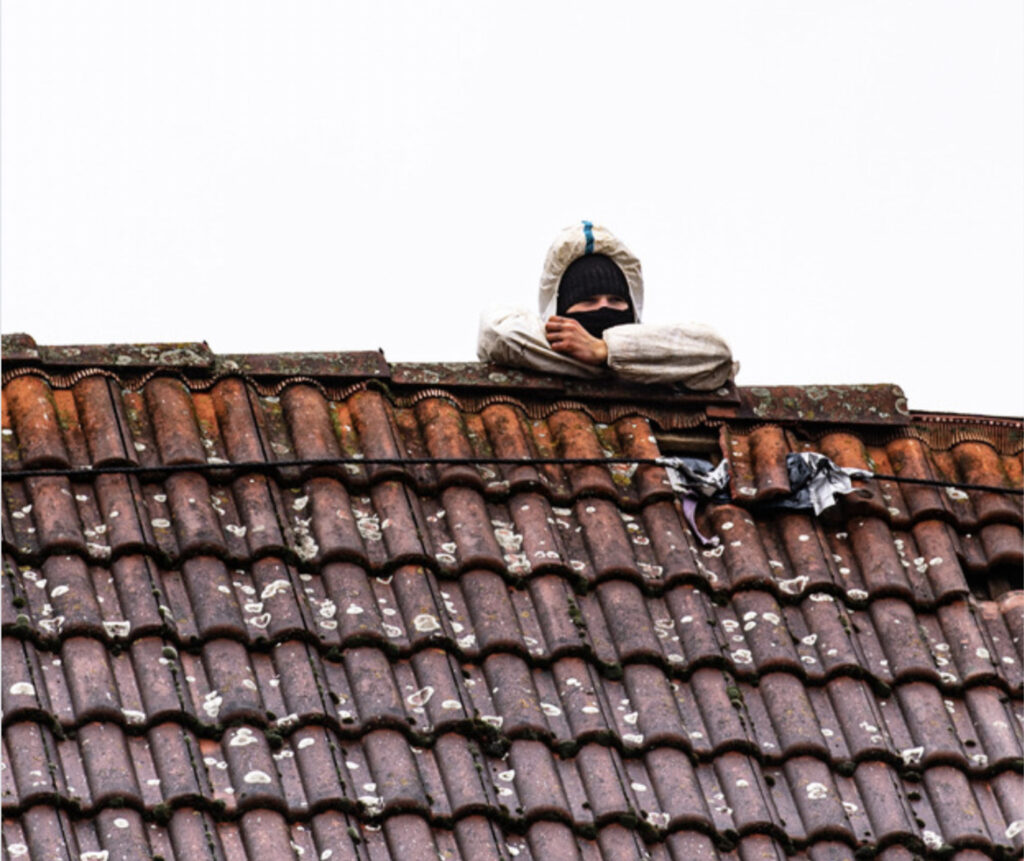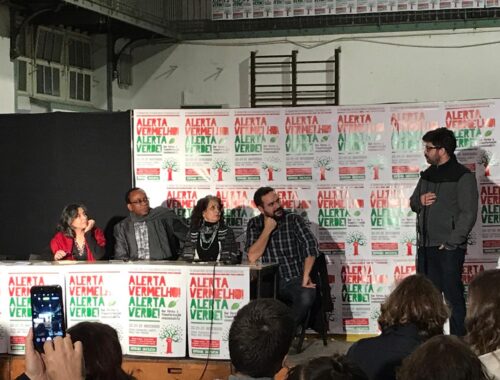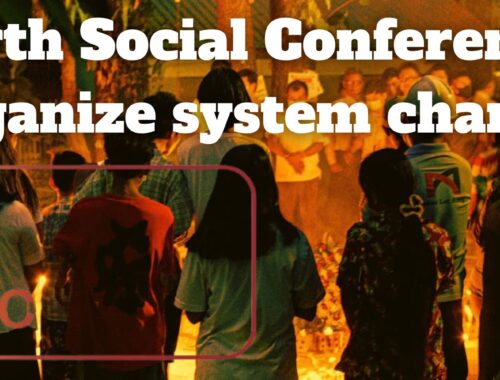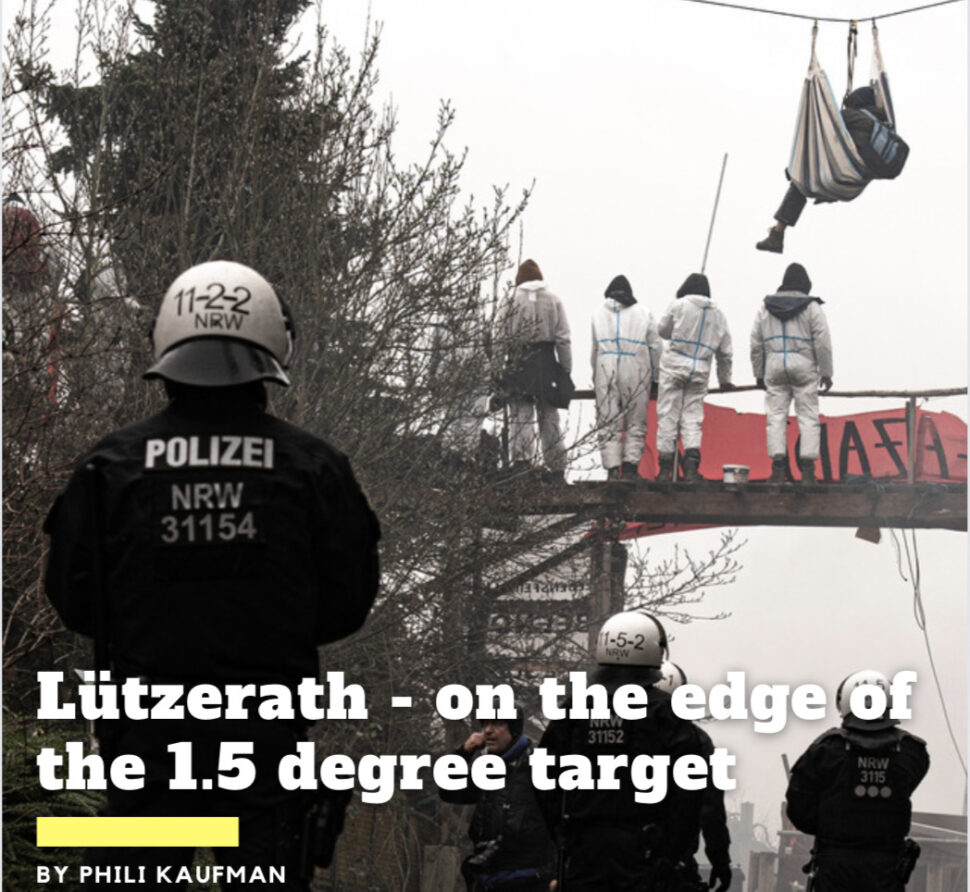
Lützerath – on the edge of the 1.5 degree target
by Phili Kaufman
Profit interests and climate targets – the future of future generations lies beneath the small village of Lützerath.
Not even a hundred meters from the edge of the Garzweiler open pit coal mine, climate activists have been occupying Lützerath for 2.5 years. Like so many other villages, it is soon to disappear in the hole of the Garzweiler open pit mine. The village in Nordrhein-Westfalen has been reported on by international media over the last few months because on November 24th 2022, it was announced that Lützerath is to be cleared in a large-scale police operation and excavated.
An estimated 280 million tons of brown coal lie buried beneath the site. According to studies, burning any more than 100 million tons would make it impossible for Germany to fulfil the Paris climate agreement. Therefore, mining coal under Lützi is a bill that doesn’t add up. The Garzweiler coal mine is over 300 square meters in size. This means that an area as large as the city of Munich has been dug up completely and made unusable for both humans and nature. And the Garzweiler coal mine is not the only open pit mine in Germany; in fact, there are 10 active opencast brown coal mines currently in use in the country.
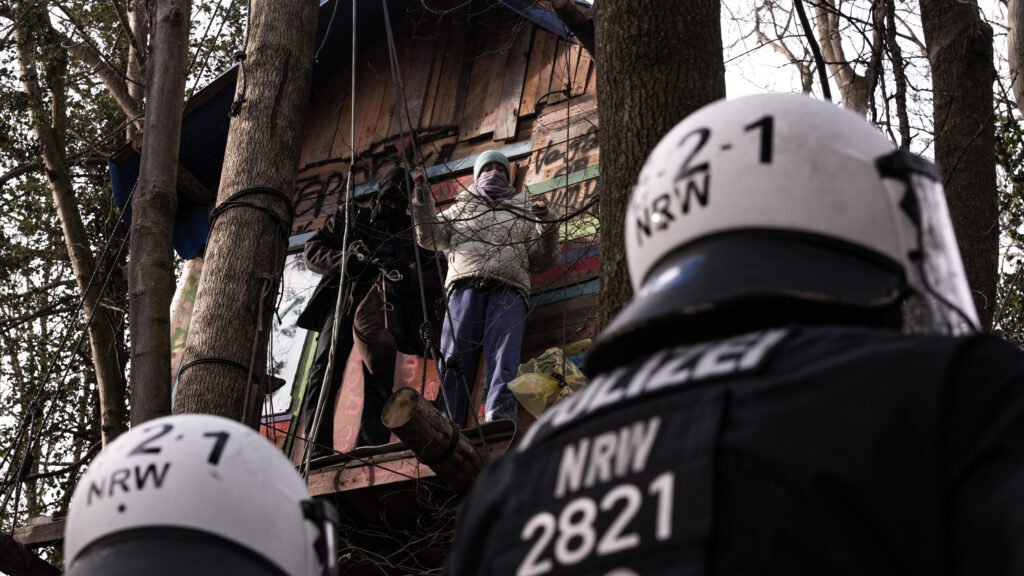
Officially, Germany aims at exiting coal altogether by 2038. Far too late, according to many climate activists. But with the rising gas prices before and during the Russian war of aggression, eliminating fossil fuels as sources of energy has dropped further and further down on the list of priorities. Decisions to phase out coal are being revised. Again and again, it is claimed that the coal under Lützerath is needed in order to guarantee energy security. A line of argumentation that is simply not true. In 2022, the Technical University of Berlin published a study that clearly showed that the coal under Lützerath is not needed for Germany’s energy security.
But, in reality, energy security is not the relevant issue at all: the RWE corporation is behind the clearance. For years, its executives have been pressuring the village’s residents to sell their homes, and those who refuse to comply are sued and evicted. It is a battle between David and Goliath. In Lützerath, the local farmer Eckardt Heukamp was the last one to remain stubborn. He tried to sue the state of Nordrhein-Westfalen, which had expropriated his land for RWE’s benefit, but had to give up the case in the summer of 2022. A court had rejected his objection, thus allowing the coal company access to Heukamp’s land and stables even before the expropriation proceedings were completed. He sold the land to RWE out of necessity.
In December 2022 it became clear that the police would make an attempt at clearing Lützerath – and that sooner rather than later. At the beginning of the new year, police forces started official preparations: an extra parking lot for police vehicles and a storage area for equipment and food were established on the edge of the coal mine. Arriving activists were strictly controlled or not allowed to pass at all. Although a public vigil was legally registered to take place on site until January 9th, structures erected by activists were evacuated prematurely.
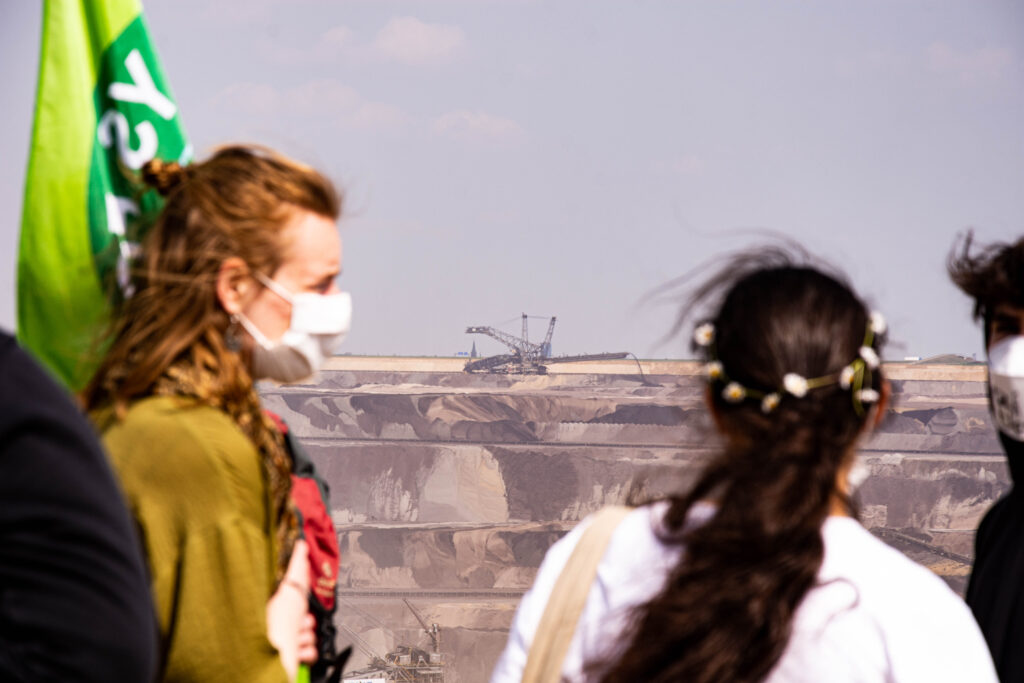
When the last evening of legally accepted protest in Lützerath arrived, more people than ever before had come to the village. It was a mixture of contrasting feelings. Proud of one’s achievements and of how many one has become, frustrated that now everything that had been built here was to come to an end, and angry that, in the eyes of the decision makers, profits are worth more than the future of us all.
Not a day later, on January 10th, the eviction began. Police units were called in from 14 federal states for the operation; around 4,000 police officers were deployed. A fence was erected around the camp, while the first activists were forcibly evicted with batons and pepper spray. The now unregistered vigil also did not decide to leave by choice. Throughout the day, activists repeatedly reoccupied areas that had already been cleared. Within minutes, a new tripod was in place. As police officers on the ground began pushing people backwards, it swayed dangerously. But the activists were, and still are, not ready to give up.
The police continued the eviction violently, by day and by night. Again and again, people’s safety was put at risk and even journalists were denied access to the events. Trees were cut down not 10 meters from occupied trusses.
On Saturday, 14th of January, four days after the start of the eviction, 35,000 people gathered at the alternative camp “Unser aller Camp” in Keynberg. Through roads and fields, people streamed to Lützerath to protest against the eviction.
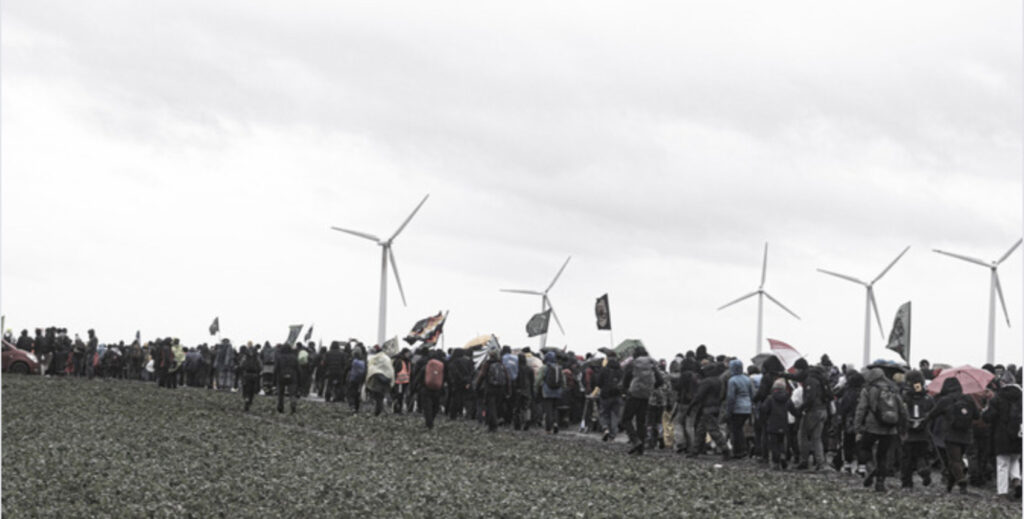
The police proceeded with full force and brutality against the protesters. With baton blows targeted at the head, one message was made clearer than ever: Whoever fights against big corporate profits will have to face state violence.
More than a hundred people were injured during the operation, over ten of them suffered broken bones. These actions have shown what measures are taken in order to enforce the interests of large corporations.
On Monday, 6 days after the start of the eviction, Pinky and Brain, the two activists who had held out in a tunnel beneath Lützerath, were the last people to voluntarily leave the scene. The area had changed completely since they had climbed into the hole: instead of countless colorful tree houses, green meadows and trasses, they were now surrounded by excavators, piles of garbage and excavated soil. They were walking through the dystopia they had tried to prevent.
For several days after the end of the eviction, climate activists remained in custody. RWE also announced that they would sue for damages to the machines and objects used by the evictors – yet another attempt to intimidate activists and prevent them from taking further action against the open pit mine and the corporation.
But solidarity with all those who have experienced and still are experiencing repression is unbroken, be it through letters to prisons or through donations. The battle against legal penalties is also fought together.
Lützerath is now cleared. The 1.5-degree line, which surrounded the village, has been broken. And, rightly, one asks: What now?
“The important thing is that this eviction does not define our history here. We are so much more than the few headlines about police violence and allegedly thrown Molotov cocktails. And we will be back. Where and when, you will see. But this struggle is not over yet,” said one activist when she arrived at “Unser Aller Camp” after the eviction. And she is right. The occupation in Lützerath was a place of resistance and a gathering point for international struggles. Even though Lützerath is now cleared – the struggle continues. Before, during and after the eviction, there were countless actions of solidarity and disruptions all over the world. Even if in the case of Lützerath a large corporation’s greed for profit has won once again, the will to fight for a climate-just future remains unbroken.
